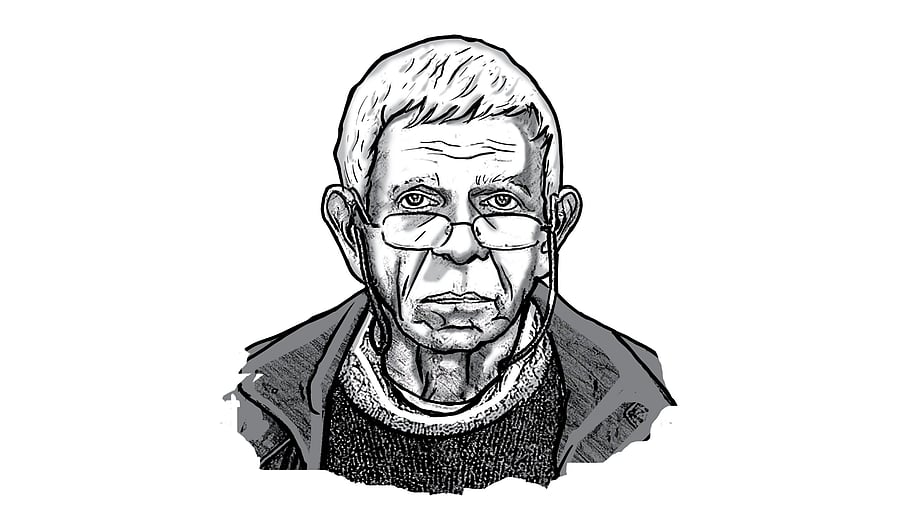
Roger Marshall is a computer scientist, a newly minted Luddite and a cynic.
Credit: DH Illustration
In an article that appeared in this newspaper just a few weeks ago, I had written that corporate states replacing democratic governments was very much on the horizon and that we should all be concerned. In this piece, I explore the avenues through which this sad state of affairs has come to be and what we can expect in the future.
If you were to look up the entry for ‘globalisation’ in Wikipedia, this is what you will find – “the process of increasing interdependence and integration among the economies, markets, societies, and cultures of different countries worldwide, facilitated by the reduction of trade barriers and advancements in technology. It involves the flow of goods, services, information, and people across borders, leading to a more interconnected world.” Even though this explanation covers a lot of ground, it leaves out an important fact – only some countries, societies, and markets stand to benefit from globalisation. There is a huge disparity in technological capabilities across countries, the free flow of people across borders is a myth, and nothing is said about which countries get to decide who the winners and losers are.
The type of globalisation promoted by the wealthy industrialised nations was principally to take advantage of cheap material resources and even cheaper labour in the Global South. This approach has backfired spectacularly in that it has resulted in China becoming enormously powerful, both economically and militarily, in under 25 years and threatening the hegemonic role of the West.
To facilitate international trade, the Bretton Woods system, set up in 1944 and agreed upon by 44 countries, established a new international monetary system with gold as the basis for the US dollar and fixed exchange rates. The system collapsed in the early 1970s when the US unilaterally decided it would no longer exchange gold for US currency. The International Monetary Fund (IMF) and the World Bank came into being under the Bretton Woods system. Even though the World Trade Organisation (WTO) was created in 1995, China was admitted as a member in 2001 only after it was forced to make changes to its monetary and economic policies. So, globalisation did not really take off until 2001.
A great reset from globalisation is now in progress as evidenced by not only the Trump administration’s abrupt and capricious imposition of huge tariffs but also the agenda items of two crucial recent conferences – the June 2025 Bilderberg Conference and the January 2025 Davos meeting of the World Economic Forum (WEF).
The theme of WEF 2025, attended by nearly 3,000 global leaders from over 125 countries, was Collaboration for the Intelligent Age. Since 2009, the WEF has been working on a project called the Global Redesign Initiative (GRI), which proposes a transition away from intergovernmental decision-making towards a system of multi-stakeholder governance. According to the Transnational Institute, an Amsterdam-based NGO, the Forum is planning to replace a recognised democratic model with a model where a self-selected group of “stakeholders” makes decisions on behalf of the people. These stakeholders are the CEOs of multinational corporations, leading politicians from select nations, and an assortment of academics and journalists sympathetic to WEF’s goals. The agenda of the 2025 meeting included geopolitical stability, climate change, AI governance, and the future of global trade. The Transnational Institute describes the WEF’s main purpose as being “to function as a socialising institution for the emerging global elite, globalisation’s ‘Mafiocracy’ of bankers, industrialists, oligarchs, technocrats, and politicians.”
The 2025 Bilderberg Conference, held in Stockholm, Sweden, was restricted to around 125 participants from just 23 countries, all in North America, the UK, and the European Union. The Bilderberg conferences are an annual private gathering of European and North American politicians, CEOs, national security experts, academics, and journalists. The conference was first established in 1974, the attendance is by invitation only, and media are not allowed. Bilderberg conferences operate under the Chatham House Rule, meaning that participants are sworn to secrecy and cannot disclose the identity or affiliation of any particular speaker. According to the Bilderberg website, key topics for discussion at the conference include the transatlantic relationship, migration, geopolitics of energy and critical minerals, AI, and national security. A partial list of attendees disclosed by the conference organisers includes the US Army General Europe and Africa, the US Navy Admiral Indo-Pacific Command, and the CEOs of Citigroup, Microsoft, Google, Palantir/PayPal, Thales, and Pfizer. All but three of the attendees are white.
Whatever is decided upon at the Bilderberg Conference will affect the entire world, much like the Bretton Woods meeting in 1944. Cryptocurrency and AI will determine your future, and there is little you can do about it.